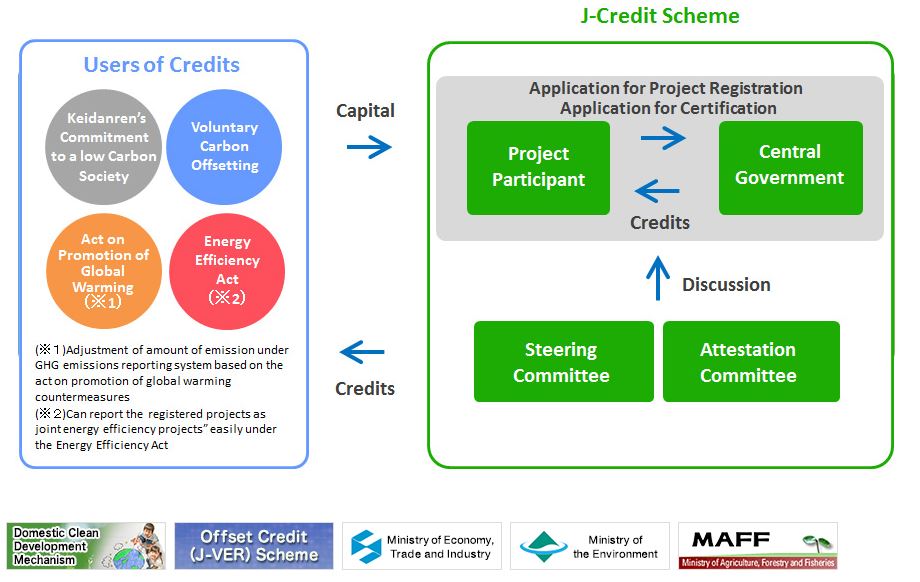Japan Government | Source | Download |
The J-Credit Scheme is designed to incentivize and facilitate GHG emission reductions and removals in Japan. It aims to promote corporate social responsibility (CSR) activities and voluntary carbon offsetting while contributing to national and international climate goals.
Key Components
- Project Eligibility: Projects within Japan that demonstrate GHG emission reductions or enhance removals, such as energy-saving initiatives, renewable energy adoption, proper forest management, and waste management practices, are eligible for participation.
- Participants: Large enterprises, small and medium-sized companies, farmers, forest owners, and local governments can participate as both buyers and creators of J-Credits, facilitating a broad spectrum of engagement.
- Certification Process: Rigorous validation and verification processes ensure the credibility and integrity of projects. Accredited examining authorities validate project proposals and monitor implementation, while a certification committee oversees credit certification.
- Methodologies: Methodologies categorize eligible projects by sector (energy, industrial processes, agriculture, waste, forest) and provide rules for monitoring, calculation, and validation. Currently, 69 methodologies have been approved, covering various emission reduction and removal activities.
- Trading and Reporting: J-Credits can be traded through bilateral negotiations, official auctions, brokerage websites, and carbon credit markets. Companies can utilize purchased credits to report achievements in renewable energy adoption and GHG reduction targets, enhancing their environmental credentials.
Achievements: As of August 2023, the scheme has registered over 1,010 projects, resulting in the certification of approximately 8.95 million t-CO2 in credits. Notable project types include solar power generation, energy-saving initiatives, and forest management activities.





